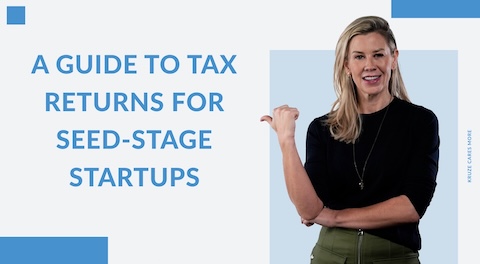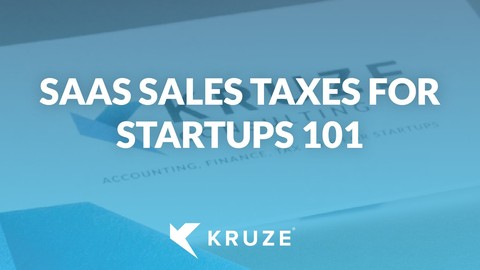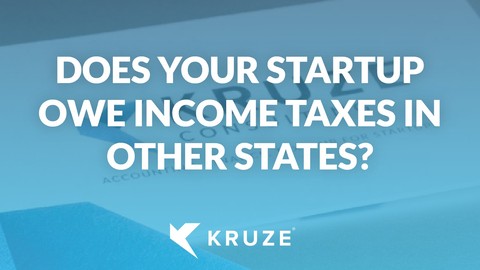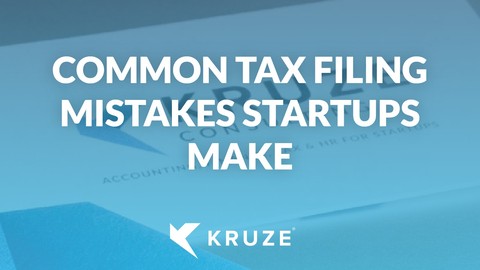
State sales taxes - they matter more than ever for startups. Here is what you need to know if your company is selling products or services in multiple states.
Why do startups need to care about state sales taxes and tax nexus?
Even money losing, early-stage companies may owe state sales taxes. This becomes even more of an issue if your company has remote employees in many states, and as you have a greater number of “transactions” and revenue from various locations.

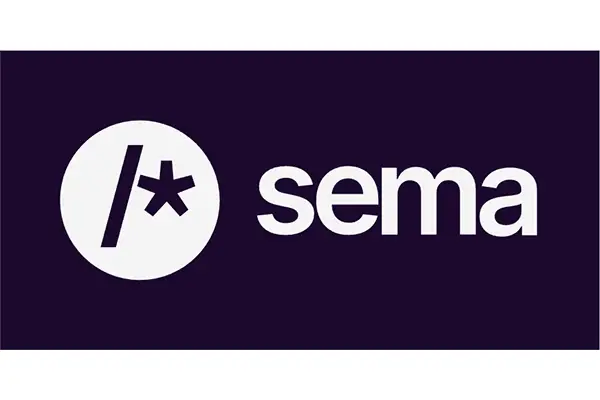
"We serve a very broad set of customers, and I can absolutely trust and rely on Kruze to handle our taxes. It’s one less thing I have to worry about, and it’s just so worth it."
Map of State Sales Taxes for Startups
The information below is specific to Sales Tax registrations and separate from state registrations. The data on specific state sales tax rates, thresholds and applicability is for illustrative purposes only, and should not be relied on to prepare state tax compliance or sales tax calculations - work with a qualified CPA like Kruze Consulting to comply with state and local sales tax rules.
VC-Backed Startups: Contact us for a free consultation.
- Summary of States with Annual Revenue Threshold
- Summary of States with a Sales Tax Transaction Threshold
- Summary of States with No Sales Tax
- Summary of States that include Marketplace Sales in Threshold
- Summary of States that Exclude Marketplace Sales from Threshold
- Summary of States that Tax SaaS Transaction
- Summary of States that Do Not Tax SaaS Transaction
State Tax Nexus
What is State Tax Nexus:
- Tax Nexus describes the relationship between a taxing authority and a business.
- Tax Nexus must exist before a state’s taxing authority can levy a tax on a business.
- A business must have a substantial presence in a State before it creates nexus.
- To determine your business has Tax Nexus in a state:
- Registering to do business in the state
- Physical Presence in the form of Employees, Property, or Assets in a state
- The Supreme Court’s decision in South Dakota vs Wayfair many states enacted economic nexus laws for businesses that generate a material amount of revenue in states even if there is no physical presence in the state!
Tax nexus is the relationship between a taxing authority and a business. The way it goes is a business has to have one before it can be taxed.
So there are a couple of different types of thresholds to establishing a state tax nexus.
The basic idea is you must have a prominent presence in a state. There are a couple of ways for you to check and see if your company has this. The simplest way is just to see if you have a state registration to do business in that particular jurisdiction. The reason for that is when you start conducting business in a state, typically you have to register. The state knows you registered with them; so they are more likely to check on you and make sure you’re filing the right sales tax and tax returns. So that’s the first shortcut.
The more established way is to evaluate whether you have employees, assets, or property in a state. Anyone who’s working in a state will start triggering a state tax nexus.
So for example, if you’re a startup, and you have a W2 employee working in North Carolina, and that W2 employee is renting office space, you are going to start triggering a nexus in North Carolina. That is, that’s a pretty clear cut. It’s a little tougher to determine sometimes if there’s a computer or some very small amount of assets in North Carolina. But, you can pretty much bet that if you have employees in NC, then you are going to have a nexus.
It’s really important to distinguish between employees versus contractors. If they are contractors, and they have their equipment, such as their own laptop, you are not establishing nexus in that state.
Now, in the modern-day, there’s a lot of business conducted over the internet in the form of eCommerce sales, software or SAAS sales, or service sales.
A few years ago, the states realized this and felt like they were missing out. They brought it to the Supreme Court. The case was called Wayfair versus South Dakota, and the Supreme Court ruled in favor of South Dakota. This ruling gave states the ability to tax businesses, even if they didn’t have a physical presence in the state. You can read more on the Supreme Court’s sales tax ruling here.
So all of a sudden, online sales, online software sales, online diagnostic, or some forms of biotech stuff, all of a sudden become taxable if they pass a certain threshold of around $100,000. Of course, this has to be made even more confusing by some states having their sales taxes be based on a different revenue number in that state, or them having a particular number of “transactions” in that state, or a combination of things.
AND, not all states are collecting this type of sales tax. So the sales taxes you owe are really going to be dependent on the specific number of sales, specific states, and the dollar amount of your sales in those locations. It gets confusing fast.
However, if you’re doing business across the United States, and you have some states where you’re getting close to that $100,000 threshold, it’s getting very likely that you have created a tax nexus, and you’ll have to file sales tax returns. You’ll probably also have to file a state tax return.
In closing, the big picture on the tax nexus is that if you’re doing business in a state physically with employees, property, assets, etc. you have most likely triggered the tax nexus. If you’re doing business in the sense that you’re selling a lot of goods or services over $100,000, you have also probably triggered tax nexus.
Kruze Startup Sales Tax Advisory
Kruze has one of the largest tax teams serving VC-backed startups. Our Sales Tax team works with companies generating anywhere from a few hundred thousand dollars a month in revenue to tens of millions a month in revenue. Our process will help you stay tax compliant. We’ll work with you to assess your tax exposure and develop a plan to protect your startup. Our process includes:
- Mapping your sales tax nexus. We create a comprehensive nexus analysis of your business, sales, and revenue to determine where you’re subject to sales taxes on a state-by-state basis.
- Create a sales tax compliance plan. Based on your sales tax map, we’ll outline the states in which you need to register, register your startup with the appropriate states, and set up a schedule to file sales tax returns and make payments.
- Resolve any issues with unpaid sales tax. If your startup has any existing sales tax issues, we will work with you to address them. Many states have voluntary disclosure programs that offer full or partial amnesty to startups that are filing for the first time.
- Set up revenue and invoicing systems. We’ll recommend tools and resources that you can use to stay compliant.
- Monitoring for new jurisdictions. Our team (and software) will actively monitor your revenue to understand if new filings and tax collections are needed.
- File returns and remit payments. We’ll file your sales tax returns for the states where you have nexus, and may sure your payments are accurate and on time.
- Track your tax obligations and adjust as needed. Sales tax laws change and evolve, and your startup will grow. We will adjust your plan for any changes in existing tax obligations, and work with you to add states as your sales increase.
If your startup is ready to start making sales or already selling products, it’s important that you prepare to deal with sales taxes.
At what revenue level should startups worry about state sales tax?
At some point your venture capital-backed startup will have to start filing state sales tax. When and how much will be different from state to state.
In most states the threshold is $100,000 in annual sales, but that can change. Some states have also set the number at $500,000 while others have chosen $250,000. Smaller states tend to have a lower threshold so they are able to pick up more sales tax revenue.
But typically, most startups are in the danger zone at $100,000. At that point, most startup accountants, like Kruze Consulting, will conduct a sales tax nexus study, which helps you figure out where you have exposure, and when you will need to start filing sales tax.
Also, your revenue level is just one of many factors that will trigger the need to file state sales tax.
Let’s take a look at the other factors that can trigger state sales tax.
Transactions can trigger state sales tax
Surprising to some, but the number of transactions your startup does can also trigger state sales tax.
Typically, when a state is looking at transactions, they’re setting the threshold at 200 transactions, which doesn’t seem like a lot.
Your startup accountant will know which states consider revenue and transactions and which states consider revenue or transactions.
For some startups that are selling something at a low price point, they may not realize they’ve triggered the state sales tax requirement because they haven’t reached the revenue threshold, but they’ve certainly exceeded that 200 transactions threshold and should be filing.
Marketplace sales can trigger state sales tax
For those startups that are running a marketplace business, it’s important to understand whether the state in which they do business is including marketplace sales. If marketplace sales are included, then business owners are only getting like 5-10% value out of a sale.
For instance, if a customer buys a $100 item on your marketplace, you may charge a 5-10% fee to facilitate the transaction. If you are responsible for the sales tax on that item, it can eat up the profit margin pretty quickly.
So it’s important to talk to your startup accountant and be clear on the sales tax rules of the state in which you’re doing business.
SaaS can trigger state sales tax
Believe it or not, many states do have a SaaS sales tax.
This is a fairly new thing. A few years ago, there were roughly 13 states that taxed SaaS, and now it’s in the 20s.
More states are looking at different and new types of transactions to tax in order to fill their revenue gaps. SaaS is quickly becoming one of those transactions, especially in bigger states. Both New York and Texas have implemented a SaaS sales tax. California and Florida have not, yet.
App Stores and Sales Tax
Sales tax collection for transactions made through Apple’s App Store or Google’s Play Store is generally not the responsibility of startups or individual app developers. In general, according to the terms of service for these platforms, Apple and Google act as the merchant of record and own the customer relationship. This means that they are responsible for calculating, collecting, and remitting the sales tax to the appropriate jurisdictions.
However, for companies that also make direct sales in addition to their app store sales, it becomes more complex. The inclusion of marketplace (like App Store or Google Play) sales in the threshold for sales tax nexus depends on individual state laws. Some states may require these sales to be included in the calculations for establishing a sales tax nexus, even though the taxes themselves are being collected by the marketplace. In summary, if a startup is only selling through these platforms, they generally do not need to worry about collecting sales tax themselves, as this is handled by the platform. But if they also have direct sales, they should consult the specific regulations or consult a tax professional to understand their sales tax obligations, since the sales in specific states through the app stores may contribute to their sales tax thresholds and push them into needing to collect and remit sales tax on their direct sales.
Answering specific questions that many companies that sell through the app stores have:
Are Apple and Android App Stores Subject to Sales Tax?
Apple’s app stores and Google’s Android stores collect sales tax; many end customers will see a sales tax charge when they buy apps, depending on the laws in their location. App developers who sell 100% through these app stores do not need to worry about collecting and remitting sales tax, as Apple and Google take care of this for them. However, app developers who also sell outside of the app stores need to consult with a tax accountant, as the app store transactions in many states will count toward sales tax thresholds, and these sales could push them into a position where they need to collect and remit for their direct sales in certain locations.
Startups Must Track Their Customers’ Addresses
Properly collecting and remitting taxes is critically important to startup companies. And one of the biggest parts of that process is knowing where your customers are. Different states and jurisdictions have different tax rates, rules, and regulations. So the first step in making sure you’re following the rules is to document all your customers’ addresses.
Your customer addresses are essential for your CPA team to issue invoices and to apportion sales based on customer locations. This is important for collecting sales tax, but it also applies to your startup’s income taxes. Your accountant needs to document the amount of revenue that is generated in each state for your income tax returns. Many startups don’t collect this information up front, and then have to dig through records and compile the data, which is time-consuming and expensive.
The easiest solution is to implement a customer relationship management (CRM) system to track and document your customers and sales. Startups should establish a CRM system when they start making sales. You’ll be able to download the necessary information from your CRM system and provide it to your accountants, and save your company time and money.
Get a sales tax nexus study
Given the different rules and laws that govern each state, it’s critical to work with your startup accountant and conduct a sales tax nexus study.
The rules are different from state to state, so be sure you understand your tax obligations and what triggers them. It is much, much better to do a study before you get a sales tax notice!
If you have any questions about startup taxes or want more information on startup accounting, please contact us.
Do Startups that are Losing Money have to Collect and Remit Sales Tax?
The short answer is “yes.” Sales tax is based on any sales your startup makes, not your startup’s income. Paying sales tax and paying income tax are two totally different things.
Income Tax
You only pay income taxes when your company has a positive net income. Most startups are actually losing money. This means the majority don’t really have to worry about paying income taxes. They do still have to file income taxes but they don’t have to pay them until the business is profitable.
Out of all of our clients at Kruze Consulting, only about 5% are profitable. Those clients do need to make estimated income tax payments throughout the year and pay their income tax, depending on what their projections are and what their actual revenue is at year-end.
Sales Tax
Sales tax is what you pay when you generate sales and you charge your customers an added tax. The amount you charge and the sales tax you collect and remit depends on:
- Where your customers are
- What kind of business you are
- What you are selling
- If you have state tax nexus in the states you are selling in
Sales Tax Nexus
There are four key criteria for tax nexus but the thing that trips people up the most is whether or not they are operating in a state where there are revenue, sales, or transaction thresholds that can actually trigger sales tax. If you are passing those state sales tax thresholds because you have tax nexus, you do need to collect and remit those sales taxes.
You will definitely want to talk to your startup CPA firm, like Kruze, about this as we can determine if you should be collecting sales tax from your customers. You are responsible for doing the calculations and determining what you should be adding to the invoices. You will collect that money from your customers and then you will remit it to the states where you owe taxes.
Always Remit Sales Tax
It is very important that you always remit your sales tax once you collect it. If you don’t you risk serious repercussions, and it could even get you thrown in jail. If you are ever unsure of how much tax you are supposed to send to the government having collected sales tax, remit it to the state governments. On the other hand, if you don’t think you actually need to remit the tax collected, then you can give it back to your customers. Either way, do not hold onto that money. The IRS will not look on you kindly.
Again, don’t try to do this without help. Consult your startup accountant.
Avalara simplifies complicated startup sales taxes
In the wake of the Supreme Court’s decision in Wayfair v. South Dakota, individual states are now able to tax startups that have a physical presence in their states, as well as startups that sell more than the state’s product or revenue thresholds.
It’s easy to see how this becomes a complex compliance burden to startups. Depending on your sales footprint, you may have to submit tax filings in dozens of states. And every state has different rules and tax thresholds.
At Kruze Consulting, we often recommend our clients use Avalara, a SaaS tax compliance software solution that can track your sales by state, calculate your tax obligations, and even help you submit payments. Avalara’s robust and comprehensive solution connects with more than 1,000 different systems, and it’s great for startups that need to simplify their state tax compliance process
Does your Startup Owe Income Taxes In Another State?
While your startup could owe sales taxes in different states based on the amount of business you do there, you could also owe income taxes. Like sales tax nexus, income tax nexus thresholds differ from state to state. The factors that affect income tax nexus include sales, as well as property or payroll within a specific state. For more information see our state income tax nexus map.
California Sales Tax Partial Exemption
Some biotech and manufacturing startups can save almost four percent on sales and use tax for qualified purchases in California.
How does your startup’s state of incorporation affect taxes?
Sometimes startups might consider changing their state of incorporation to take advantage of different tax breaks. This is different than registering to do business in a state where you have tax nexus. For example, sometimes a startup might want to change states to take advantage of the R&D tax credit for another year. However, that doesn’t work, and changing your state of incorporation is not really a good idea.
Need state sales tax help or just want to leave it up to the experts?
We can help you out and can do a study for you. We will parse this figure out if you have triggered nexus and we can take care of all the forms you need to file. Feel free to contact us to learn more.
Massachusetts also offers a sales tax emption for startups conducting research and development in the state (or should we say commonwealth).
Find out if your startup qualifies for the Massachusetts R&D Sales Tax Exemption.
Summary of States with Annual Revenue Threshold
Summary of States with a Sales Tax Transaction Threshold
Summary of States with No Sales Tax
Summary of States that include Marketplace Sales in Threshold
Summary of States that Exclude Marketplace Sales from Threshold
Summary of States that Tax SaaS Transaction
Summary of States that Do Not Tax SaaS Transaction
| State | Annual State Revenue Threshold | Transaction Threshold | Marketplace Sales | SaaS Taxability |
|---|---|---|---|---|
| Alabama (AL) | 250,000 | No transaction threshold | Excluded from threshold | Taxable |
| Alaska (AK) | 100,000 | 200 | Excluded from threshold | Taxable |
| Arizona (AZ) | 100,000 | No transaction threshold | Excluded from threshold | Taxable |
| Arkansas (AR) | 100,000 | 200 | Excluded from threshold | Not Taxable |
| California (CA) | 500,000 | No transaction threshold | Included in threshold | Not Taxable |
| Colorado (CO) | 100,000 | No transaction threshold | Excluded from threshold | Not Taxable |
| Connecticut (CT) | 100,000 | 200 | Included in threshold | Taxable |
| District of Columbia (DC) | 100,000 | 200 | Included in threshold | Taxable |
| Delaware (DE) | This state does not impose sales tax. | N/A | N/A | No Sales Tax |
| Florida (FL) | 100,000 | No transaction threshold | Excluded from threshold | Not Taxable |
| Georgia (GA) | 100,000 | 200 | Excluded from threshold | Not Taxable |
| Hawaii (HI) | 100,000 | 200 | Included in threshold | Taxable |
| Idaho (ID) | 100,000 | No transaction threshold | Included in threshold | Not Taxable |
| Illinois (IL) | 100,000 | 200 | Excluded from threshold | Not Taxable |
| Indiana (IN) | 100,000 | 200 | Excluded from threshold | Not Taxable |
| Iowa (IA) | 100,000 | No transaction threshold | Included in threshold | Taxable |
| Kansas (KS) | 100,000 | No transaction threshold | Included in threshold | Not Taxable |
| Kentucky (KY) | 100,000 | 200 | Included in threshold | Not Taxable |
| Louisiana (LA) | 100,000 | 200 | Excluded from threshold | Not Taxable |
| Maine (ME) | 100,000 | 200 | Excluded from threshold | Taxable |
| Maryland (MD) | 100,000 | 200 | Included in threshold | Taxable |
| Massachusetts (MA) | 100,000 | No transaction threshold | Excluded from threshold | Taxable |
| Michigan (MI) | 100,000 | 200 | Included in threshold | Not Taxable |
| Minnesota (MN) | 100,000 | 200 | Included in threshold | Not Taxable |
| Mississippi (MS) | 250,000 | No transaction threshold | Excluded from threshold | Taxable |
| Missouri (MO) | 100,000 | No transaction threshold | Only taxable sales included | Not Taxable |
| Montana (MT) | This state does not impose sales tax. | N/A | N/A | No Sales Tax |
| Nebraska (NE) | 100,000 | 200 | Included in threshold | Not Taxable |
| Nevada (NV) | 100,000 | 200 | Included in threshold | Not Taxable |
| New Hampshire (NH) | This state does not impose sales tax. | N/A | N/A | No Sales Tax |
| New Jersey (NJ) | 100,000 | 200 | Included in threshold | Not Taxable |
| New Mexico (NM) | 100,000 | No transaction threshold | Excluded from threshold | Taxable |
| New York (NY) | 500,000 | 100 | Included in threshold | Taxable |
| North Carolina (NC) | 100,000 | 200 | Included in threshold | Not Taxable |
| North Dakota (ND) | 100,000 | No transaction threshold | Excluded from threshold | Not Taxable |
| Ohio (OH) | 100,000 | 200 | Included in threshold | Depends on business or personal use |
| Oklahoma (OK) | 100,000 | No transaction threshold | Excluded from threshold | Not Taxable |
| Oregon (OR) | This state does not impose sales tax. | N/A | N/A | No Sales Tax |
| Pennsylvania (PA) | 100,000 | No transaction threshold | Included in threshold | Taxable |
| Rhode Island (RI) | 100,000 | 200 | Included in threshold | Taxable |
| South Carolina (SC) | 100,000 | No transaction threshold | Included in threshold | Taxable |
| South Dakota (SD) | 100,000 | 200 | Included in threshold | Taxable |
| Tennessee (TN) | 100,000 | No transaction threshold | Excluded from threshold | Taxable |
| Texas (TX) | 500,000 | No transaction threshold | Included in threshold | Taxable |
| Utah (UT) | 100,000 | 200 | Excluded from threshold | Taxable |
| Vermont (VT) | 100,000 | 200 | Included in threshold | Not Taxable |
| Virginia (VA) | 100,000 | 200 | Excluded from threshold | Not Taxable |
| Washington (WA) | 100,000 | No transaction threshold | Included in threshold | Taxable |
| West Virginia (WV) | 100,000 | 200 | Included in threshold | Taxable |
| Wisconsin (WI) | 100,000 | No transaction threshold | Included in threshold | Not Taxable |
| Wyoming (WY) | 100,000 | 200 | Excluded from threshold | Not Taxable |
